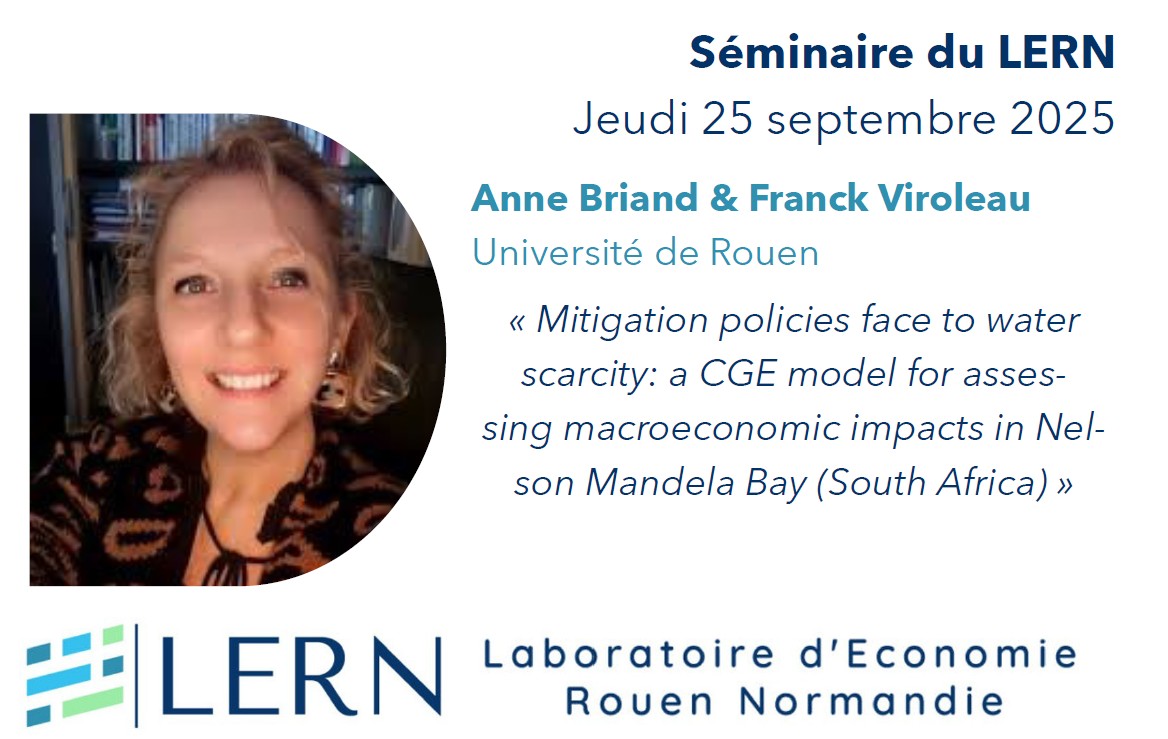📢 Séminaire externe du LERN – Jeudi 25 septembre à 12h
Jeudi prochain (le 25 septembre 2025), nous aurons le plaisir d’écouter Anne Briand et Franck Viroleau qui présentera un article intitulé : « Mitigation policies face to water scarcity: a CGE model for assessing macroeconomic impacts in Nelson Mandela Bay (South Africa) ».
Abstract : This paper aims to study the responses to the water scarcity experienced by the Nelson Mandela Bay Municipality in South Africa. We analyze various public policies determined in collaboration with local stakeholders, using a general equilibrium model integrating the water dimension and its link with the micro and macroeconomic variables of this local economy. This model is calibrated on an updated social accounting matrix, enabling public policy simulations up to 2030. The model predicts that the economy will react, with a 0.82% decrease in GDP by 2030, to a 17% water shortage due to climate change, poor water management and a growing population. The sectoral breakdown shows that water-related industries will be the hardest hit. Simulations suggest that unemployment will remain at a high level, and a 0.03% decrease in consumption will be experienced by the population, particularly those with the lowest incomes. The most effective public policies for mitigating these effects are found to be those related to water saving and reduction of non-revenue water.

